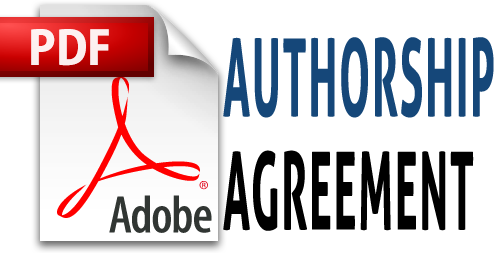THE EFFECTIVENESS OF THE USE OF E-LEARNING IN MULTIMEDIA CLASSES TO IMPROVE VOCATIONAL STUDENTS' LEARNING ACHIEVEMENT AND MOTIVATION
 Alin Hoerunnisa(1*),
Nunuk Suryani(2),
Agus Efendi(3)
Alin Hoerunnisa(1*),
Nunuk Suryani(2),
Agus Efendi(3)
(1) Program Studi Teknologi Pendidikan, Universitas Sebelas Maret, Indonesia
(2) Program Studi Teknologi Pendidikan, Universitas Sebelas Maret, Indonesia
(3) Program Studi Teknologi Pendidikan, Universitas Sebelas Maret, Indonesia
(*) Corresponding Author
 Abstract viewed : 9915
|
Abstract viewed : 9915
|  PDF downloaded : 1764
PDF downloaded : 1764
Abstract
The development of Information and Communication Technology (ICT) in education has paved the way for the emergence of new teaching and learning methodologies. E-learning, which refers to the use of ICT for learning purposes, is an important area emphasized in education. The purpose of this study was to determine the effectiveness of the use of E-learning in multimedia classes to improve vocational students' learning achievement and motivation. The Quasi-experiment method was used in this study. The research subjects used were class X students at the Veteran Vocational School Sukoharjo, Central Java. This research was conducted in Multimedia classes on computer and basic network subject matter on the topic of sharing devices. Class samples are selected using the random sampling technique. The experiment class consists of 31 students, while the control class consists of 33 students. In this study two formulation of problems were used, namely: (1) How is the effectiveness of E-learning to improve student learning achievement?; (2) How is the effectiveness of E-learning to improve student motivation? The hypothesis test used is the Independent T Test. The results showed that the use of E-learning can significantly improve student achievement and motivation on computer and basic network subject matter on the topic of sharing devices. In addition, the use of E-learning can also increase student participation in learning.
Abstrak
Perkembangan Teknologi Informasi dan Komunikasi (TIK) dalam pendidikan telah membuka jalan bagi munculnya metodologi pengajaran dan pembelajaran baru. E-learning, yang mengacu pada penggunaan TIK untuk tujuan pembelajaran, menjadi area penting yang ditekankan dalam pendidikan. Tujuan dari penelitian ini adalah untuk mengetahui efektifitas penggunaan E-learning untuk meningkatkan prestasi dan motivasi belajar siswa di Sekolah kejuruan. Metode kuasi ekperimen digunakan pada penelitian ini. Subjek penelitian yang digunakan yaitu siswa kelas X di SMK Veteran Sukoharjo, Jawa Tengah. Penelitian ini dilakukan di kelas Multimedia pada pelajaran komputer dan jaringan dasar pada topik sharing devices. Sampel kelas dipilih menggunakan teknik sampling acak. Kelas eksperimen terdiri dari 31 siswa, sedangkan kelas kontrol terdiri dari 33 siswa. Dalam penelitian ini digunakan dua rumusan masalah, yaitu: (1) Bagaimana keefektifan media E-learning untuk meningkatkan prestasi belajar siswa?; (2) Bagaimana keefektifan media E-learning untuk meningkatkan motivasi belajar siswa?. Uji hipotesis yang digunakan adalah Uji Independent T Test. Hasil dari penelitian ini menunjukkan bahwa penggunaan media E-learning secara signifikan dapat meningkatkan prestasi dan motivasi belajar siswa pada mata pelajaran komputer dan jaringan dasar pada topik sharing devices. Selain itu, penggunaan E-learning juga dapat meningkatkan partisipasi siswa terhadap pembelajaran.
Keywords
References
Abdelhai, R., Yassin, S., Ahmad, M.F., Fors, U.G., 2012. An e-learning reproductive health module to support improved student learning and interaction: a prospective interventional study at a medical school in Egypt. BMC Med. Educ. 12, 11. DOI: http://doi.org/10.1186/1472-6920-12-11
Algarabel, S., Dasí, C., 2001. The definition of achievement and the construction of tests for its measurement: A review of the main trends. Psicológica 22, 43–66. http://www.redalyc.org/pdf/169/16917746001.pdf
Ali, Z.M., Mustafa, Z., Ying, Y.S., Suradi, N.R.M., Abidin, N.Z., Shahabuddin, F.A., Embi, M.A., Ahmad, S., 2011. E-Learning service in the School of Mathematical Sciences. Procedia - Soc. Behav. Sci. 18, 316–325. DOI: http://doi.org/dvg62z
Amandu, G.M., Muliira, J.K., Fronda, D.C., 2013. Using moodle e-learning platform to foster student self-directed learning : Experiences with utilization of the software in undergraduate nursing courses in a Middle Eastern university. Procedia - Soc. Behav. Sci. 93, 677–683. DOI: http://doi.org/gc7r9h
Bokor, O., Hajdu, M., 2014. The use of eLearning in teaching construction management core subjects. Procedia Eng. 85, 75–83. DOI: https://doi.org/10.1016/j.proeng.2014.10.531
Carmen, G., 2015. A Study about Using E-learning Platform ( Moodle ) in University Teaching Process. Procedia - Soc. Behav. Sci. 180, 426–432. DOI: https://doi.org/10.1016/j.sbspro.2015.02.140
Coll, S.D., Coll, R.K., 2018. Using blended learning and out-of-school visits: pedagogies for effective science teaching in the twenty-first century. Res. Sci. Technol. Educ. 36, 185–204. DOI: http://doi.org/dbq5
Comarella, R.L., Silveira, R.A., Campos, R.L.R., Catapan, A.H., 2012. e-Learning course educational Linux for high school students in Brazil. Proc. 12th IEEE Int. Conf. Adv. Learn. Technol. ICALT 2012 268–269.
Dey, P., Bandyopadhyay, S., 2019. Blended learning to improve quality of primary education among underprivileged school children in India. Educ. Inf. Technol. 24, 1995–2016. DOI: https://doi.org/10.1007/s10639-018-9832-1
Dimic, G., Predic, B., Rancic, D., Petrovic, V., Macek, N., Spalevic, P., 2017. Association analysis of moodle e-tests in blended learning educational environment. Comput. Appl. Eng. Educ. DOI: https://doi.org/10.1002/cae.21894
Falcinelli, E., Falcinelli, F., Laici, C., Milani, A., 2007. Experience of blended e-learning in post-graduate training for High School Teaching Qualification. Proc. - Int. Work. Database Expert Syst. Appl. DEXA 06123, 663–667. DOI: https://doi.org/10.1109/DEXA.2007.93
Graf, S., List, B., 2005. An Evaluation of Open Source E-Learning Platforms Stressing Adaptation Issues *. Proc. Fifth IEEE Int. Conf. Adv. Learn. Technol. 5–7. DOI: https://doi.org/10.1109/ICALT.2005.54
Grover, S., Pea, R., Cooper, S., 2015. Designing for deeper learning in a blended computer science course for middle school students. Comput. Sci. Educ. 25, 199–237. DOI: https://doi.org/10.1080/08993408.2015.1033142
Hakim, S.R., Kustijono, R., Wiwin, E., 2019. The use of android-based teaching materials in physics learning process at vocational high school. J. Phys. Conf. Ser. 1171. DOI: https://doi.org/10.1088/1742-6596/1171/1/012024
Ho, V.T., Nakamori, Y., Ho, T.B., Lim, C.P., 2016. Blended learning model on hands-on approach for in-service secondary school teachers: Combination of E-learning and face-to-face discussion. Educ. Inf. Technol. 21, 185–208. DOI: https://doi.org/10.1007/s10639-014-9315-y
Hwang, R.-H., Lin, H.-T., Sun, J.C.-Y., Wu, J.-J., 2019. Improving Learning Achievement in Science Education for Elementary School Students via Blended Learning. Int. J. Online Pedagog. Course Des. 9, 44–62. DOI: http://doi.org/dbq6
Indzhov, H., Totkov, G., Doneva, R., 2011. (E-Learning in a Moodle-based Adaptive and Accumulative System). IEEE Int. Conf. Comput. Syst. Technol. 2, 498–503. DOI: https://doi.org/10.1145/2023607.2023691
Irawan, V.T., Sutadji, E., Widiyanti, 2017. Blended learning based on schoology: Effort of improvement learning outcome and practicum chance in vocational high school. Cogent Educ. 4, 1–10. DOI: https://doi.org/10.1080/2331186X.2017.1282031
Jordan, C., 2013. Comparison of International Baccalaureate (IB) chemistry students’ preferred vs actual experience with a constructivist style of learning in a Moodle e-learning environment. Int. J. Lesson Learn. Stud. DOI: https://doi.org/10.1108/20468251311323397
Karagiannis, I., Satratzemi, M., 2017. Enhancing Adaptivity in Moodle : Framework and Evaluation Study.
Katsigiannakis, E., Karagiannidis, C., 2017. Gamification and Game Mechanics-Based e-Learning : A Moodle Implementation and Its Effect on User Engagement. In: Research on E-Learning and ICT in Education. 10.1007/978-3-319-34127-9_11, pp. 147–159.
Kong, S.C., Chan, T.-W., Huang, R., Cheah, H.M., 2014. A review of e-Learning policy in school education in Singapore, Hong Kong, Taiwan, and Beijing: implications to future policy planning. J. Comput. Educ. 1, 187–212. DOI: https://doi.org/10.1007/s40692-014-0011-0
Kukartsev, V., Chzhan, E., Tynchenko, V., Antamoshkin, O., Stupina, A., 2018. Development of Adaptive E-Learning Course in Moodle System. SHS Web Conf. 50. DOI: https://doi.org/10.1051/shsconf/20185001091
Longo, C.M., 2016. Changing the instructional model: Utilizing blended learning as a tool of inquiry instruction in middle school science. Middle Sch. J. 47, 33–40. DOI: http://doi.org/10.1080/00940771.2016.1135098
Minovic, M., Štavljanin, V., Milovanovi, M., Star, D., 2008. Usability Issues of e-Learning Systems : Case-Study for Moodle Learning Management System.
Mustofa, Z., 2019. Pengaruh Discovery Learning Berbantuan E-Learning dalam Meningkatkan Penguasaan Konsep Siswa Tentang Konsentrasi Larutan dan Aplikasinya. Kwangsan: Jurnal Teknologi Pendidikan, 7(1), 14. DOI: https://doi.org/10.31800/jtp.kw.v7n1.p14--29
Paechter, M., Maier, B., Macher, D., 2010. Students’ expectations of, and experiences in e-learning: Their relation to learning achievements and course satisfaction. Comput. Educ. 54, 222–229. DOI: https://doi.org/10.1016/j.compedu.2009.08.005
Pevac, D.V., Milanovic, K.S., Milosavljevic, M.M., 2005. E-learning Method Implementation in the High School Vocational Education. IEEE EUROCON 2005 - Int. Conf. “Computer as a Tool” 835–838. DOI: http://doi.org/10.1109/EURCON.2005.1630062
Popovici, A., Mironov, C., 2015. Students’ Perception on Using eLearning Technologies. Procedia - Soc. Behav. Sci. 180, 1514–1519. DOI: https://doi.org/10.1016/j.sbspro.2015.02.300
Quesada, J., Calvo, I., Sancho, J., Sainz, A., Sánchez, J., Gil-garcía, J.M., Sebastián, R., Castro, M., 2013. Combining Moodle and Redmine as e-learning tools in Project Based Learning of Industrial Electronics. 7th IEEE Int. Conf. e-Learning Ind. Electron. 86–91. DOI: https://doi.org/10.1109/ICELIE.2013.6701278
Rivalina, R., 2017. Strategi Pemanfaatan E-Learning dalam Mengatasi Keterbatasan Jumlah Dosen. Kwangsan: Jurnal Teknologi Pendidikan, 5(2), 129. DOI: https://doi.org/10.31800/jtp.kw.v5n2.p129--145
Rutkowski, J., 2015. Moodle-Based Computer-Assisted Assessment in Flipped Classroom. In: Smart Education and Smart E-Learning, Smart Innovation, Systems and Technologies. Gliwice, pp. 37–46. DOI: https://doi.org/10.1007/978-3-319-19875-0_4
Sebnem, K.I., 2015. Investigation of students attitudes towards e-learning in terms of different variablesA case study in a technical and vocational high school for girls. Educ. Res. Rev. 10, 81–91. DOI: http://doi.org/10.5897/ERR2014.1980
Seki, K., Tsukahara, W., Okamoto, T., 2005. System development and practice of e-Learning in graduate school. Proc. - 5th IEEE Int. Conf. Adv. Learn. Technol. ICALT 2005 2005, 740–744. DOI: http://doi.org/10.1109/ICALT.2005.249
Shidiq, A.S., Yamtinah, S., 2019. Pre-service chemistry teachers’ attitudes and attributes toward the twenty-first century skills. In: Journal of Physics: Conference Series. DOI: https://doi.org/10.1088/1742-6596/1157/4/042014
Sugiarti, Y., Nurmayani, S., Mujdalipah, S., 2018. Analysis of Blended Learning Implementation on Waste Treatment Subjects in Agricultural Vocational School. IOP Conf. Ser. Mater. Sci. Eng. 306. DOI: https://doi.org/10.1088/1757-899X/306/1/012136
Sugiyanta, L., Sukardjo, M., 2018. Adjusted Framework of M-Learning in Blended Learning System for Mathematics Study Field of Junior High School Level VII. IOP Conf. Ser. Mater. Sci. Eng. 336. DOI: https://doi.org/10.1088/1757-899X/336/1/012031
Tuna, J.R., Manoppo, C.T.M., Kaparang, D.R., Mewengkang, A., 2018. E-Learning Development Process for for Operating System Course in Vocational School. IOP Conf. Ser. Mater. Sci. Eng. 306. DOI: https://doi.org/10.1088/1757-899X/306/1/012068
Umek, L., Aristovnik, A., Tomaževič, N., Keržič, D., 2015. Analysis of Selected Aspects of Students ’ Performance and Satisfaction in a Moodle-Based E-Learning System Environment. Eurasia J. Math. Sci. Technol. Educ. 11, 1495–1505. DOI: https://doi.org/10.12973/eurasia.2015.1408a
Utomo, S.W., Wihartanti, L.V., 2019. Penerapan Strategi Blended Learning untuk Meningkatkan Kemampuan Berpikir Kritis Mahasiswa pada Era Revolusi Industri 4.0. Kwangsan: Jurnal Teknologi Pendidikan, 7(1), 30. DOI: https://doi.org/10.31800/jtp.kw.v7n1.p30--44.
Wai, C.C., Seng, E.L.K., 2014. Exploring the Effectiveness and Efficiency of Blended Learning Tools in a School of Business. Procedia - Soc. Behav. Sci. 123, 470–476. DOI: https://doi.org/10.1016/j.sbspro.2014.01.1446
Wang, T., 2014. Developing an assessment-centered e-Learning system for improving student learning effectiveness. Comput. Educ. 73, 189–203. DOI: https://doi.org/10.1016/j.compedu.2013.12.002
Wang, T.H., 2011. Developing Web-based assessment strategies for facilitating junior high school students to perform self-regulated learning in an e-Learning environment. Comput. Educ. 57, 1801–1812. DOI: https://doi.org/10.1016/j.compedu.2011.01.003
Warnajith, N., Dassanayake, G., Dahanayaka, D.D.G.L., Tonooka, H., Minato, A., Ozawa, S., Perera, M.P.M., 2012. Prototype of E-Learning Management System for secondary school in Sri Lanka. 2012 Int. Conf. Inf. Technol. Based High. Educ. Training, ITHET 2012. DOI: http://doi.org/dbrd
Yanuschik, O. V., Pakhomova, E.G., Batbold, K., 2015. E-learning as a Way to Improve the Quality of Educational for International Students. Procedia - Soc. Behav. Sci. 215, 147–155. DOI : https://doi.org/10.1016/j.sbspro.2015.11.607
Zain, A.R., Jumadi, 2018. Effectiveness of guided inquiry based on blended learning in physics instruction to improve critical thinking skills of the senior high school student. J. Phys. Conf. Ser. 1097. DOI: https://doi.org/10.1088/1742-6596/1097/1/012015
Zhang, L., 2010. A feasibility study on the adoption of e-learning for middle school teachers’ continuing education in China. Proc. - 2011 8th Int. Conf. Inf. Technol. New Gener. ITNG 2011 1052–1053. DOI: http://doi.org/d6256s
Refbacks
- There are currently no refbacks.
Copyright (c) 2019 Alin Hoerunnisa, Nunuk Suryani, Agus Efendi

This work is licensed under a Creative Commons Attribution-NonCommercial 4.0 International License.
Kwangsan Indexed By
Kwangsan: Jurnal Teknologi Pendidikan diterbitkan oleh Balai Besar Guru Penggerak (BBGP) Prov. Jawa Timur.
Kementerian Pendidikan dan Kebudayaan
Alamat Redaksi:
Jl. Mangkurejo, Ds. Kwangsan, Sedati - Sidoarjo.
Telp 0318911373 Fax. 0318911392
Email: jurnal.kwangsan@kemdikbud.go.id & jurnalkwangsan@dikbud.belajar.id






























